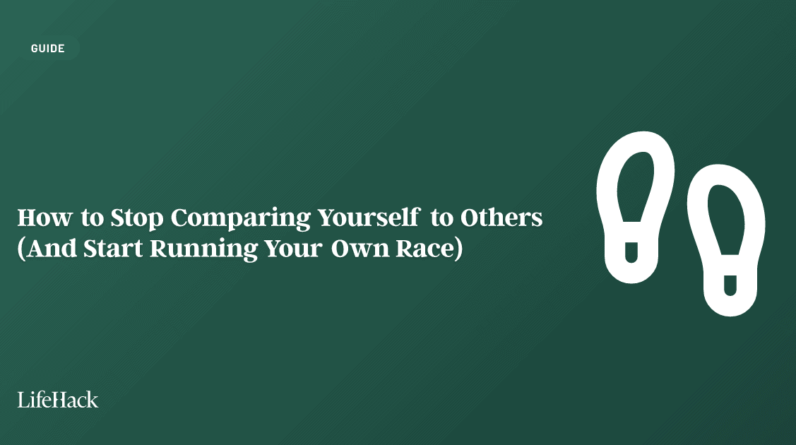
When we lose the people we love or those who mean something to us, the natural emotional response is grief.
Grief is traditionally addressed in the context of death, but it can also exist when relationships end or even when we experience life changes like the loss of a job or dream.
We all experience grief differently, but there are common underlying aspects that we all need to understand in order for us to better comprehend how we can cope with loss.
But, before we get to how we can deal with grief, let’s start off by understanding how we experience grief.
Understanding the 5 Stages of Grief
Elisabeth Kübler-Ross is the psychiatrist who introduced the five stages of grief.
Initially, she saw these stages as what people experience when they are dying, but advancing research has also explained these stages in light of how people feel when they are grieving.
Denial
Right after experiencing loss, the first stage is denial.
We find it hard to accept that we have lost someone or something and try to convince ourselves that the loss has not happened. This denial is an attempt to minimize the pain we experience as a result of the loss.
Anger
The next phase is anger.
Here, we are experiencing discomfort as a result of the loss. Our anger can be directed at the person we have lost or, in some cases, towards ourselves. We sometimes feel like we could have done things differently and avoided the loss.
Bargaining
At this point, we are desperate and feel like we can do anything and everything to numb the pain resulting from the loss.
We hope and pray for a different outcome, and we feel helpless but believe that if someone can change the situation, we will give them anything to do so.
Depression
As we realize that we have lost something or someone we wanted, we become depressed and sad over the loss.
We will likely take time to ourselves and reminisce about the good memories we have as we remember that they are now in the past. This can be an isolating phase.
Acceptance
Finally, we reach a point of acceptance.
We understand that the loss has happened, and we can’t do anything about it. We realize that it is important for us to figure out how to continue living and enjoying life despite this loss.
Do these seem familiar? It’s important to note that these stages are not linear and may not be experienced by everyone or in the same order. Nonetheless, we need support and resources to help us navigate these five stages.
Below are some of the resources we can consider when grieving.
3 Resources For Dealing With Grief
Counselling
The power of talking to someone can not be undermined. Through counselling, we can get:
- Emotional support
- Support as we deal with trauma
- A better understanding of our emotions and grief
- Effective coping strategies
- Support as we transition through life
Types of counselling that are the most effective when dealing with grief include:
- Cognitive Behavioral therapy (CBT)
- Acceptance and Commitment Therapy (ACT)
- Traumatic Grief Therapy
- Complicated Grief Therapy
- Interpersonal Therapy
You can find online counselling through websites such as BetterHelp.com, but if you would prefer to speak to someone in person, search for ‘grief counselling near me’ and see what is available near your location.
Local Grieving and bereavement organizations
Most areas have organizations and call centres that offer support to people who are grieving.
These can be a good way of getting support and being equipped to best deal with grief. In some cases, we need to talk to people who are going or have gone through the same loss as we have to get an idea of how they overcame and accepted it.
Living Loss: How To Navigate Rejection, Job Loss, & More→
Books That Can Offer You Comfort When You’re Grieving
Disclosure: As an Amazon Associate, we earn a commission when you click the link and finalize a purchase (At zero cost to you.). We participate in programs like these to keep providing our readers free daily motivational content.
When grieving, we tend to want to spend time alone, and if you are in that phase, books can be a good companion.
There are some wonderful people out there who have had different experiences and have written books on grief. Depending on the grief you are dealing with, you can find books that address your experiences.
Some good books that can offer comfort include:
Atlas of the Heart: Mapping Meaningful Connection and the Language of Human Experience by Brené Brown


Brené Brown’s book explores the complexities of grief, and she explores how to cope with loss in a meaningful way.
Grief One Day at a Time by Alan D. Wolfelt, Ph.D.


Alan Wolfelt’s book offers daily meditations that one can use as a starting point or guidance when meditating. It has suggestions that provide comfort and support every day for 365 days after a loss.
The Other Side of Sadness by George A. Bonanno


George A. Bonanno’s book expands on the above five stages of grief and provides a different perspective of loss and grief. It will help you realize the capacity we have when dealing with grief.
Grieving Takes Time!
After loss, you can feel pressure to get over it or simply focus on what you haven’t lost.
But just like all other emotions, grief has to be experienced in order for us to move past it. Allow yourself to feel and process your grief in a way that’s healthy for you, whether that involves:
- seeking support from others
- talking to a therapist
- or finding ways to honor and remember what or who you’ve lost
Do it.
The strategies stipulated in this article are effective for various and differing circumstances. Find what works for you and do that.
When you try something and feel like you are not getting the desired results, it is okay to implement another strategy and see how it works out.
You do not have a timeline for grieving. It takes time, and we all move through it at different paces.
Photo by Mikhail Nilov







